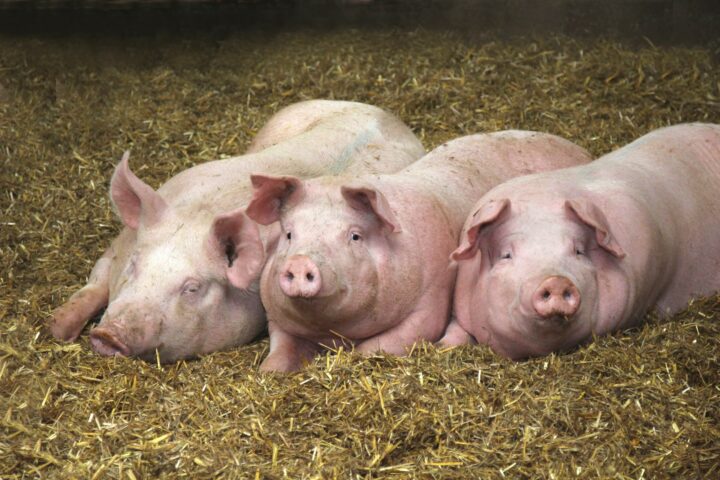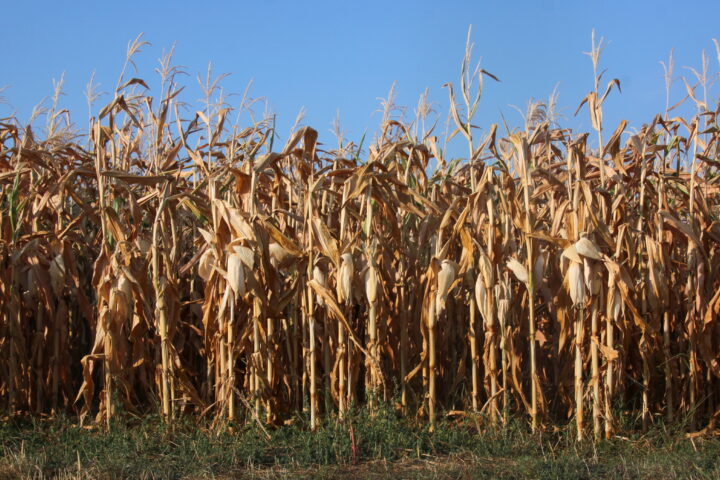
Climate change requires precision breeding
Central Europe is becoming hotter and drier due to climate change. We need robust new crop varieties to protect harvests against invasive pests. Innovative methods, such as precision breeding using gene editing, can help growers keep pace with climate change.
Wednesday, October 27, 2021
The rise in average global temperatures is increasing the likelihood of extreme weather events, such as heat waves and persistent droughts, but also heavy rain and floods. For farmers, these weather conditions often mean crop losses. Persistent heat causes crops like wheat to mature too early, while too much moisture can lead to fungal diseases. However, rising temperatures lead to more than just volatile weather conditions. Harmful organisms from warmer regions are suddenly able to thrive in places that used to be too cold. Since 1960, insect pests have been moving north at an average of 2.7 kilometers per year.
Rising temperatures cause massive crop losses
With an increase in average temperatures, pests have not only spread, but also become more biologically active. In other words, they remain active for a longer period of time and reproduce more vigorously. A model study at the University of Washington predicts that crop losses caused by insect pests will increase by 46 percent, assuming a 2-degree temperature increase. The relevant figures for corn and rice are 31 and 19 percent, respectively. Global crop losses would be enormous. Higher temperatures also facilitate the spread of crop diseases caused by viruses, fungi and bacteria. In addition, changes in environmental conditions encourage the development of mutants.
Megatrend: Climate change
Time is short
Plant protection products will not be available soon enough to combat every pest and every disease. Moreover, in many cases – for example when the harmful organism is located in the core – pesticides should not be used. What we need most of all in order to maintain productivity are robust new plant varieties that are resistant to extreme weather and new kinds of pests. The problem is that traditional breeding methods take a long time. In most cases, ten years or more go by between the first crossbreeding and the time when a new variety is ready for the market. If plant breeding is to keep pace with climate change, we need new and innovative processes. One such process is precision breeding using molecular biology.
Farmers need a complete set of tools
With the CRISPR/Cas9 gene scissors, it is possible to «cut» a crop’s genetic material more precisely than ever before. Certain genes that are detrimental to the plant can be «switched off.» The major advantage of this technology: The breeding of new varieties can be accomplished much more quickly. Since genetic material can be modified very precisely, it is no longer necessary to spend years backcrossing with old varieties. A single characteristic – such as resistance to a certain disease – can be added to an established variety, or a trait can be eliminated. What’s clear is that Farmers need a complete set of tools if they are to continue to achieve high yields. And openness to new technologies is crucial. Otherwise, Europe and Switzerland risk falling behind in the production of agricultural goods.
Sources
Genetic engineering in organic pasta?
The TV program Terra X, broadcast by the German ZDF network, is exploring whether precision breeding methods like CRISPR/Cas can contribute to more sustainable, diverse and climate-resistant agriculture. It is also looking at why we are consuming genetically modified plants even when we shop in organic food stores.
People are open to genetic engineering
A recent study conducted by gfs.bern shows that the oft-cited skepticism of the Swiss regarding genetic engineering is actually a myth. When respondents are aware of a technology’s concrete benefits, they are more willing to accept it. A large majority believe that gene editing is beneficial if it protects plants from mildew or fire blight.
Related articles

What’s Really in Your Shopping Basket
Genetic engineering in our shopping basket? Yes – and much more often than we think. Whether it’s pasta, bread or vegetables: many of the everyday products we consume come from mutation breeding, which involves altering the genome and is considered safe. It’s high time to debunk the common myths.

Genomic breeding methods are not given a chance to prove themselves
Modern genomic breeding methods are legally classified as genetic engineering – and are therefore still effectively blocked. Yet we have been eating genetically modified plants for decades, just under the label of “classical mutagenesis.” The new, more precise techniques are regulated more strictly than the old ones, even though they are considered safer from a scientific perspective. A contradiction that urgently needs to be corrected. The EU is setting a good example.

No Pig Business: Why Testicle-Free Boars Are a Clear Win for Animal Welfare
New breeding methods are opening up new possibilities in both plant and animal breeding. They allow targeted genetic changes that can make animals more resilient, adaptable, and healthier.

Stagnation instead of progress: Switzerland risks falling behind in new breeding techniques
An overview article in Schweizer Bauer shows how much the new breeding methods are preoccupying farming circles. Once the consultation process on the federal law has been completed, a bill is expected – then it will become clear whether there is actually the political will to approve it.

